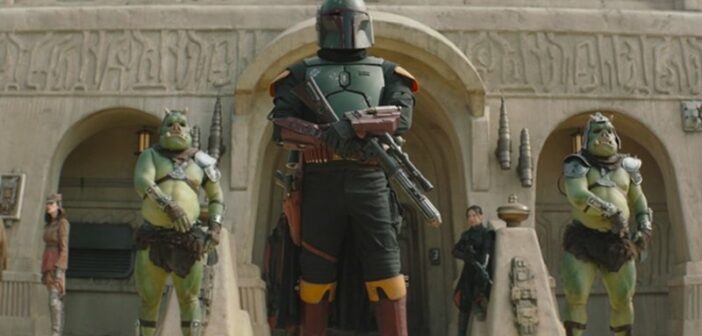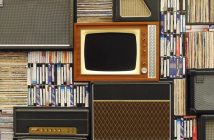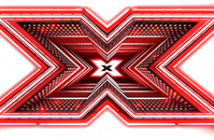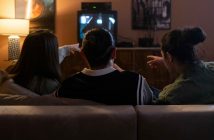The Book of Boba Fett swerves too far from its title character at times, mixing episodes of real Star Wars substance with low-octane backstory and a plodding main narrative.
-
6
What links Minions, the Penguins of Madagascar, Lego Batman and Boba Fett? Well, they are all popular supporting characters thrust into their own spin-off project that evidently shows they do not have the capacity to lead their own story. Disney+’s first spin-off show of an existing character has landed less like a seismic charge and more like a… ‘well what even was that?’
Boba Fett entered the mainstream as the Clint Eastwood-inspired bounty hunter who tracks down Han and Leia in The Empire Strikes Back. His iconic Mandalorian armour and clear skill at his job cemented him (in carbonite?) as a fan favourite, unfortunately, one who gets rather clunkily disposed of in Return of the Jedi by falling into the Sarlaac Pit. It has since spawned gigabytes of online speculation that he survived his fall and escaped, and this was confirmed with his official arrival in season two of The Mandalorian. The post-credit scene of that show’s finale saw Fett become the replacement crime lord of Tatooine with ‘The Book of Boba Fett’ then announced. It was a surprising decision to give so laconic a character his own show, but it was clear that the mega-nerds Jon Favreau and Dave Filoni had some wicked ideas up their sleeve.

Lucasfilm
Temuera Morrison, originally cast as Jango Fett for Attack of the Clones¸ was the logical casting decision for Jango’s grown up, cloned son. He evidently relishes the role and engages with fans, and his screen presence is strong, with or without his helmet. Accompanying him is Fennec Shand (Ming-na Wen), a lethal assassin with very little in the way of characterisation. Fett, with his armour and ship back, is fed-up with working for scum so decides to correct Tatooine as its new godfather, hoping to rule with respect rather than fear. Inevitably, other crime syndicates prove adversaries to Fett’s goals.
The structure of the show is one of the most baffling in recent memory. The first four episodes utilise the Godfather Part II system of cutting between the events in the present and using Fett’s recovery in a bacta tank to give us flashbacks of how he escaped the Sarlaac Pit and what he did after. The latter sequences are vastly more engaging; we see Fett stripped of his armour and join a tribe of Tusken Raiders, learning their ways and becoming one of them. However, because four episodes are broken up with past and present events, it never feels like the main story truly gets going and seems vague and uninteresting.

Lucasfilms
The bantha in the room is episodes 5 and 6 which take a dramatic left-turn out of nowhere, with Pedro Pascal’s ‘Mando’ returning for what is essentially a The Mandalorian Season 2.5 episode. Boba Fett is not seen at all for the entire duration, with director Bryce Dallas Howard knocking it out of the park with a stunning, well crafted fifty minutes of television. It felt like the majority of the show’s budget went into this and episode 6 (in that instalment Boba Fett has barely two minutes of screentime), as the visuals and direction are significantly better. The dilemma then is this: is The Book of Boba Fett a total failure as a Boba Fett show, or is it a total triumph as a Star Wars show? Dave Filoni’s episode 6 is a monumental achievement for the universe, with many iconic characters returning in sequences that felt like I could hear a “million voices cry out in ecstasy… and then were silenced.”
One major criticism for the early episodes is the Tatooine location. This desert planet has been mined for every last bit of culture and landscape and setting Fett’s story entirely on the sandy rock makes it visually challenging to keep it fresh (it feels amazing when the show does go to more organic or urban environments). This does not bode well for the upcoming, Tatooine-set Obi-wan Kenobi show. Furthermore, there is a dreadful third episode filled with Power Ranger-esque characters and a painfully slow and laborious ‘high-speed’ chase. What’s more, Boba Fett himself seems to be nerfed, with a weak script rarely giving him time to shine in the present-day scenes. The presence of Mando too is overwhelming, reminding us how great his show is and will continue to be. Fett feels constantly side-lined in his own show.
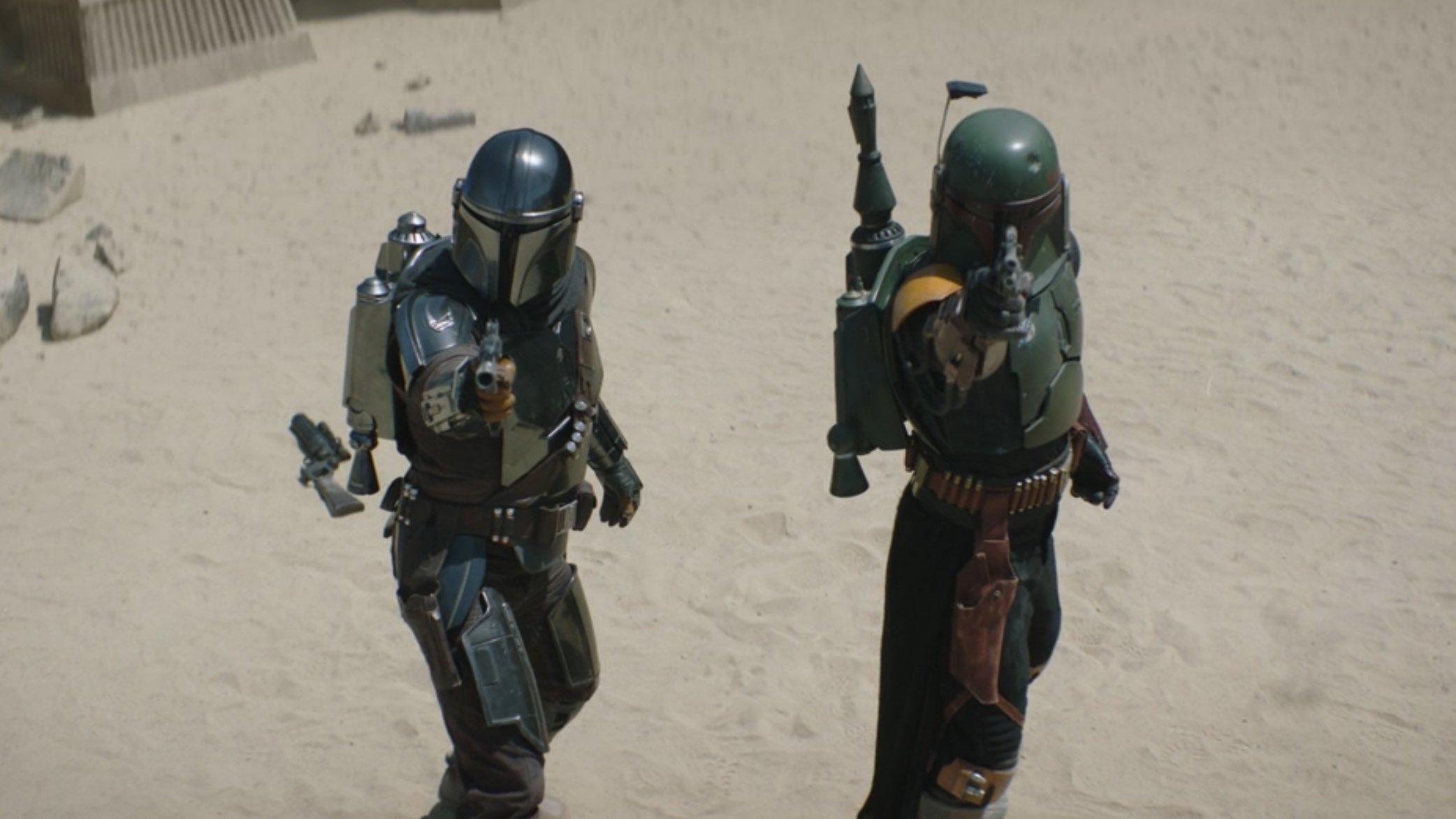
Lucasfilm
There is, perhaps most importantly, a healthy amount of fun and new additions. The inclusion of Chekov’s rancor, the gladiatorial Wookie Krrsantan and Mando’s new starfighter will reap the rewards from future LEGO sets and toys. But a lack of coherence in narrative and style (Robert Rodriguez’s subpar direction is painfully obvious) renders this an overall average television series that relies too heavily on external connections and the audience expectation to consume every piece of Star Wars going.
The Book of Boba Fett is streaming now on Disney+. Watch the trailer below:

